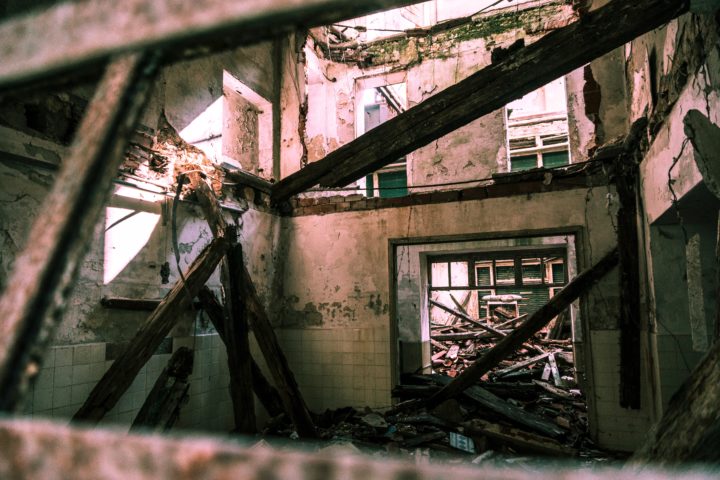The following contribution is from another author.
Home is much more than the bricks and mortar that make up your property; it’s a feeling, an emotional state, that allows you to feel safe, warm, cosy and protected. So, when something bad happens to your home you are dealing with something much deeper than the practical issue of repairing your property.
In this sense, a lot of times, when dealing with a home disaster, you also need to deal with your emotions around the disaster. For instance, you might have lost some items of sentimental value, which can feel like you have lost your connection to the irreplaceable memories they are linked to.
This can make you feel an incredible amount of loss and sadness that extends beyond the financial loss of the property damage. Indeed, when it comes to dealing with a home disaster, there’s often an element of emotional loss that gets overlooked.
The reason this tends to get overlooked is because, when disaster strikes our “fight or flight” response kicks in and we step into action mode – rather than feeling mode – meaning we are so busy trying to take care of the situation that we put our emotions on hold, which is perfectly healthy, as long as at some point you let them out.
In a practical sense, when disaster strikes, we tend to go in a state of panic and often this renders us unable to take the immediate action required to prevent further damage and undertake the repair work necessary to get things back on track. This is where calling in the professionals to deal with the situation can be invaluable, for instance a water damage restoration company can pay dividends, because not only will they be able to help in a specialized way, but they are also going to be able to “deal with” the situation much better from an emotional perspective.
They have a sense of detachment from the situation, much the same as a paramedic has, in that they can deal with the practicalities of the situation without getting lost in the emotion. This makes them much more effective at repairing the damage that has been and preventing further damage from occurring.
When dealing with a home disaster, it’s akin to the medical advice for dealing with a stroke, in that the faster you act, the less damage will occur.
In this article, we’re going to take a look at five things you need to do when cleaning up your home after a disaster..
Have the Right Safety Equipment
Depending on the nature of the disaster, you want to ensure that it is safe to enter the property and start repair work. After all, your personal safety is the most important thing in all of this. In this sense, you want to equip yourself with safety gear such as hard hats, protective gloves, face masks, correct footwear and the right tools for the job.
Pace Yourself
It can feel overwhelming when tackling a home disaster, and in this sense, you don’t want to take on too much at once.
You are dealing with a lot of emotions here too – not just practicalities. When you are emotionally exhausted and physically tired, accidents happen. Pace yourself. Chunk down the tasks into bite size chunks so that you don’t feel overwhelmed, and feel more positive about the progress you’re making with things.
It might be necessary to look at what can be done yourself, and what tasks need the professionals to take over. The point is, don’t overload yourself as you’re going to be overwhelmed as it is – and right now, you need to be gentle on yourself emotionally yet efficient with regard to your actions.
Find Non-Replaceable Items
You will want to make sure you locate your non-replicable items as soon as possible, particularly if they have sentimental value or are at risk of data loss. You will then want to get them repaired as soon as possible.. You will then want to keep these items away from the clean-up operation, perhaps storing them at a safe place, such as a trusted friend whilst you take care of the situation.
Prevent Additional Hazards
Clearing up your home after flood damage, for instance, can be hard work. There’s also an array of possible hazards. Using electricity around water can be hazardous, but sometimes necessary in order to repair the property. There’s also further hazards that could be caused as a result of the damage, such as mold.
Cleaning and drying your home as quickly as possible following water damage is very important, as doing this within 24 – 48 hours will help reduce the risk of mold. If there is a sign of mold then you will want to make sure you kill the spores with a mixture of bleach and water.
Keep Detailed Records
The last thing you will be thinking about when cleaning up your home following a disaster is record keeping, as you will most likely be in a frenzied state of panic to just take care of things within your house..
Yet, if you are working with an insurance company, you will need to keep records about any expenses you have in connection with repair work. Insurance companies work in different ways; many would hope that they’ll just take care of everything for you – but sometimes, it’s the case that you have to submit a report afterwards and then be reimbursed.
Keep a detailed list of things that you have had to replace, such as costs of cleaning products and professionals you have had to pay. You also want to keep in close contact with the insurance company, and make sure they authorize such expenses. The last thing you want is to undertake all this work thinking the insurance company will foot the bill, only to have them try to wriggle out of paying.
















